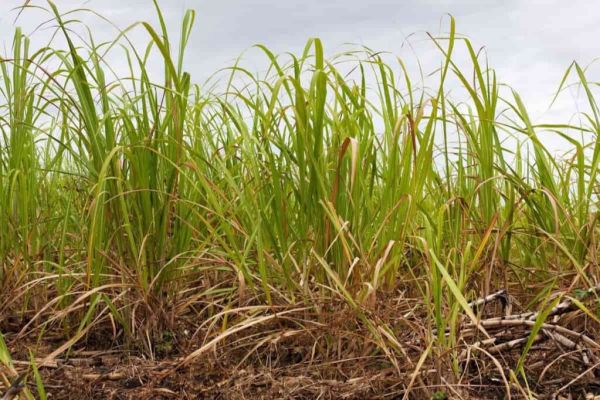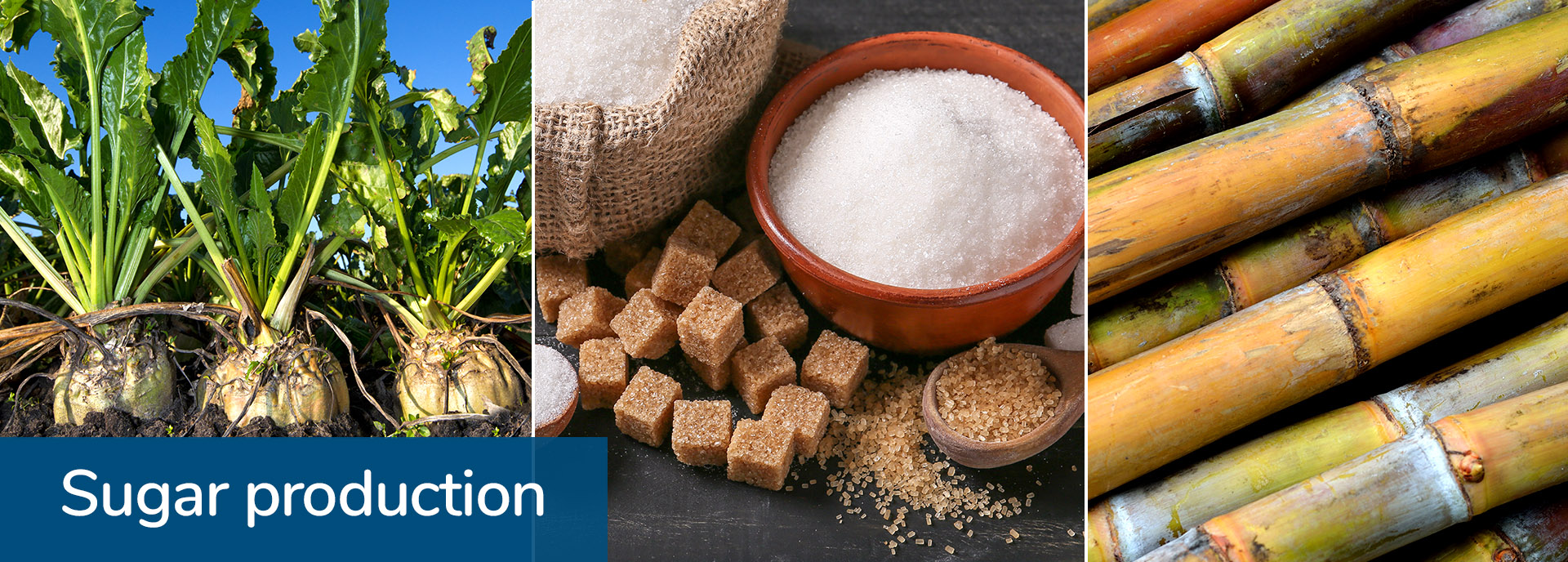What Is Sugar Cane Used For? 8 Surprising Common Uses
Wiki Article
Comprehending the Diverse Roles of Sugar Cane in Farming and Manufacturing
Sugar Cane plays an important role in both farming and manufacturing. As a significant cash crop, it influences economic climates in exotic areas. Its adaptability extends beyond sugar manufacturing to biofuels and biodegradable products. Additionally, sugar Cane growing advertises soil wellness and biodiversity. The complete scope of its contributions and prospective in sustainable practices continues to be to be discovered. What innovative steps could enhance its function in future farming systems?The Agricultural Importance of Sugar Walking Stick
Sugar Cane plays a necessary role in agriculture, contributing substantially to the economies of several tropical and subtropical regions. This lawn varieties grows in warm climates, needing adequate sunshine and water, making it an ideal plant for these locations. Sugar Cane is largely grown for its high sucrose content, which functions as a critical resources for sugar manufacturing. Additionally, it plays a significant duty in soil conservation by avoiding erosion and enhancing soil fertility through its growth cycles. Sugar cane's considerable origin system aids in water retention, benefiting neighboring plants. In addition, the plant sustains neighborhood communities by offering habitat and food for numerous wild animals types. Farmers frequently incorporate sugar Cane into crop rotation systems, improving biodiversity and farming resilience. The farming of sugar Cane not just fulfills local food needs yet likewise fosters sustainable farming methods, advertising long-lasting environmental health in farming communities.Financial Payments of Sugar Cane Growing
Sugar Cane is typically overlooked, its economic payments are significant, especially in establishing countries where it offers as an important cash crop. The cultivation of sugar Cane generates significant revenue for countless farmers, offering livelihoods and fostering country development. As a versatile crop, it sustains numerous industries, consisting of sugar manufacturing, biofuels, and pharmaceuticals, consequently boosting neighborhood economies.Sugar Cane growing promotes task creation in agricultural fields, processing centers, and transportation networks. It additionally adds to fx earnings with exports, improving national economic stability. In regions such as Brazil and India, sugar Cane plays a critical function in farming exports, bolstering trade balances.
Additionally, the crop's spin-offs, like bagasse and molasses, use more financial possibilities, made use of in power generation and animal feed. Hence, the financial influence of sugar Cane expands past plain farming, affecting wider farming and industrial landscapes.
The Refine of Sugar Manufacturing From Cane

The trip from sugar Cane to refined sugar entails a number of vital stages that highlight the intricacy of sugar production. Originally, fully grown sugar Cane stalks are collected and carried to refining centers. The Cane is then squashed to draw out juice, which includes a high focus of sucrose. This juice goes through clarification, where impurities are eliminated, typically making use of lime and warm
Next off, the made clear juice is evaporated to focus the sugar content. The resulting syrup is after that subjected to crystallization, permitting sugar crystals to form. These crystals are separated from the continuing to be syrup through centrifugation and washed to eliminate any kind of residual molasses.
The last phase entails refining, where sugar crystals are further cleansed and blonde, resulting in the white granulated sugar frequently utilized in foodstuff. This meticulous process highlights the detailed journey from raw Cane to the sugar that plays an important function in different cooking applications.
Sugar Cane as a Resource of Biofuels
As rate of interest in sustainable power resources expands, sugar Cane has become a significant prospect for biofuel production. The plant's high sugar web content enables effective fermentation processes, transforming sugars into ethanol. This biofuel works as an eco-friendly alternative to fossil fuels, decreasing greenhouse gas emissions and advertising power sustainability.Nations like Brazil have lengthy made use of sugar Cane for ethanol, developing considerable production facilities that supports both domestic energy requirements and global export. The farming of sugar Cane for biofuel has actually likewise produced economic chances, especially in backwoods, where it generates employment and supports neighborhood farming.
Moreover, sugar Cane biofuels can be incorporated into existing fuel systems, making them a practical option for changing far from traditional power resources. As technical advancements remain to boost manufacturing effectiveness, sugar cane's duty in biofuel growth is poised to increase, additionally adding to international initiatives toward renewable power adoption.
Cutting-edge Uses of Sugar Cane in Biodegradable Plastics
A growing variety of researchers and suppliers are checking out cutting-edge uses of sugar Cane in the manufacturing of eco-friendly plastics. Sugar walking stick, abundant in sucrose, can be processed to create polylactic acid (PLA), a biopolymer that works as a choice to petroleum-based plastics. This bioplastic can be used in various applications, consisting of packaging, disposable cutlery, and farming movies.The usage of sugar cane-derived PLA provides several benefits, such as decreased reliance check this site out on fossil gas and the possibility for lower carbon discharges during manufacturing. In addition, sugar cane's sustainable nature makes it an enticing selection in the pursuit for lasting materials. Recent improvements in processing methods have boosted the effectiveness and cost-effectiveness of generating these bioplastics, cultivating better fostering in the market. As the need for green remedies expands, sugar Cane sticks out as a beneficial source in the change towards greener manufacturing techniques.
Ecological Benefits of Sugar Cane Farming

Additionally, sugar Cane needs less water compared to various other crops, making it suitable for cultivation in deserts. Effective use of plant deposits, such as bagasse, can minimize waste and offer sustainable energy sources. Additionally, sugar Cane farming can help with the establishment of agroforestry systems, creating a synergistic partnership in between trees and crops. These techniques not only protect the environment however Going Here also advertise lasting agricultural practices, inevitably benefiting local areas and ecosystems.
The Future of Sugar Cane in Lasting Practices

The potential for sugar Cane to add to sustainable energy sources is gaining grip. Biofuels acquired from sugar Cane can notably lower carbon exhausts contrasted to nonrenewable fuel sources, straightening with international environment goals. Additionally, developments in waste management allow for the application of byproducts, additionally lessening environmental influence.
Research study into drought-resistant sugar Cane selections is likewise underway, offering strength against environment adjustment. As stakeholders across the sector accept these sustainable methods, sugar Cane is positioned to play an essential duty in promoting farming sustainability, ensuring its importance in future markets and contributing favorably to environmental balance.

Frequently Asked Questions
Exactly How Does Sugar Cane Affect Soil Health and Fertility?
The impact of sugar Cane on soil wellness and fertility is substantial. Its substantial root system enhances soil framework, while raw material from decaying leaves contributes crucial nutrients, advertising total fertility and sustaining varied microbial life.What Are the Labor Problems for Sugar Cane Workers?
Labor problems for sugar Cane employees vary widely, frequently characterized by long hours, reduced salaries, and hazardous settings. Many face difficulties such as absence of accessibility to health care and inadequate protective procedures versus dangerous problems.Can Sugar Cane Be Grown in Non-Tropical Environments?
Sugar Cane usually prospers in tropical climates due to its warmth and moisture requirements. Specific non-tropical regions might effectively grow it through certain agricultural methods, though returns and top quality may be considerably reduced.What Vermin Commonly Intimidate Sugar Cane Crops?
Insects threatening sugar Cane plants consist of the sugarcane borer, aphids, and nematodes. These organisms can considerably impact plant yield, necessitating effective parasite management approaches to ensure healthy and balanced development and make best use of agricultural efficiency.Exactly How Does Sugar Cane Cultivation Influence Resident Communities?
The farming of sugar Cane substantially impacts regional communities by supplying employment possibility, boosting financial development, and affecting social frameworks. In addition, it can bring about environmental obstacles, influencing farming techniques and area wellness in the area.Sugar Cane is primarily cultivated for its high sucrose content, which serves as a critical raw product for sugar manufacturing. Farmers typically integrate sugar Cane right into crop turning systems, improving biodiversity and farming durability. The trip from sugar Cane to polished sugar involves several key phases that highlight the complexity of sugar production. The last phase involves refining, where sugar crystals are further detoxified and blonde, Home Page resulting in the white granulated sugar typically made use of in food items. The plant's high sugar material allows efficient fermentation procedures, converting sugars into ethanol.
Report this wiki page